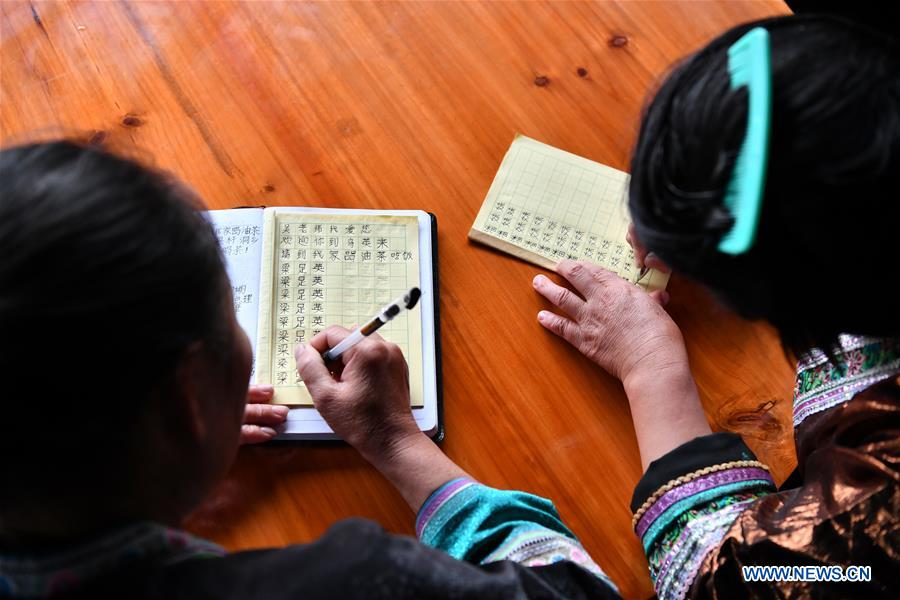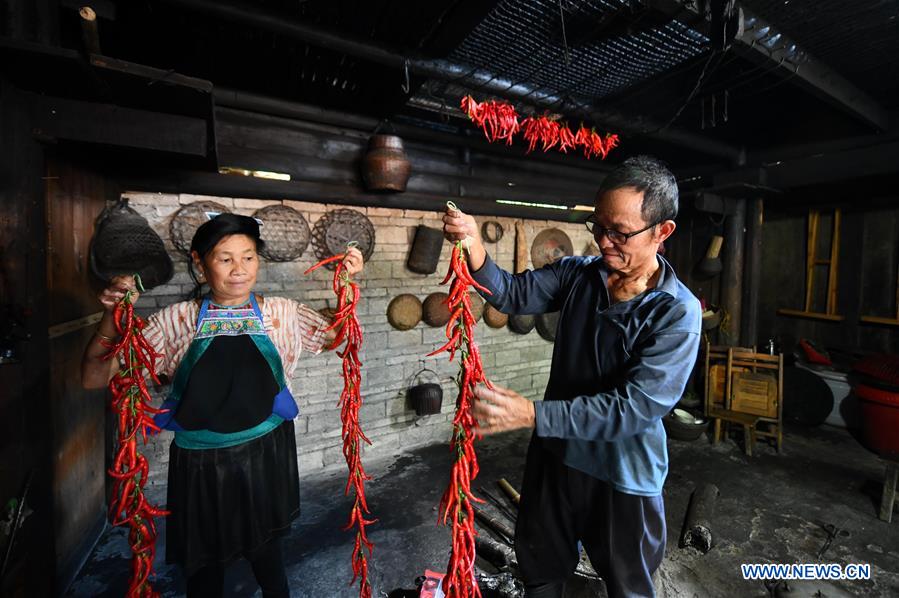
Miao villagers Liang Zuying (L) and Pan Meimei finish their homework from a Mandarin training program in Wuying Village, which lies on the border between south China's Guangxi Zhuang Autonomous Region and southwest China's Guizhou Province, on Sept. 11, 2020. Located deep in the mountains straddling the border between Guangxi Zhuang Autonomous Region and Guizhou Province, Wuying is a remote village inhabited by the Miao ethnic group where women over 40 have hardly ever attended any school. In their childhood, they were occupied with herding cattle, doing housework and taking care of younger sibling. Going to school had been a distant dream for them. They could neither read nor speak Mandarin, which made their communication with the outside world almost impossible. Since March 2020, local authorities have piloted a Mandarin training program at Wuying Village as part of the local poverty alleviation efforts, employing college students to teach stay-at-home women Mandarin, music, dance and other skills. So far, over 70 Mandarin training courses have taken place in Wuying. The number of students in the training courses has grown from 6 in the first class to nearly 30 now. To balance work and study, poverty-alleviation officials in the village have also set up after-school training centers, planting sorghum and raising fish along with local women. In the past six months, more than 30 teachers from all walks of life, including primary school teachers, college students, traffic police, TV hosts and agricultural experts, have volunteered to teach Mandarin lessons in Wuying. The training program has become a bridge for local women to reach the outside world. (Xinhua/Li Xin)













